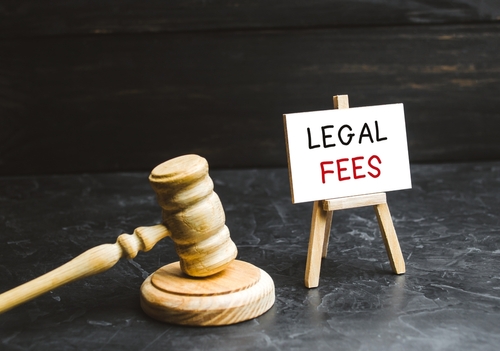A qualified lawyer can protect your rights and interests when you find yourself in a legal situation, whether it’s a personal injury case, a business dispute, or a complex legal matter.
However, the cost of legal services can be a significant concern for many individuals and businesses. Understanding the various costs associated with hiring a New York City personal injury lawyer. is essential to making an informed decision and ensuring that you get the best value for your money.
In this comprehensive guide, Rothenberg Law Firm will explore the different types of legal fees, the factors that affect the cost of hiring a lawyer, and strategies for managing the financial aspects of legal representation.
Different Types of Legal Fees
When it comes to legal fees, there are several different types that you should be aware of.
Understanding these various fee structures can help you better navigate the process of hiring a New York City personal injury lawyer and ensure that unexpected costs do not catch you off guard.

- Hourly Rate: This is the most common type of legal fee, where the lawyer charges a set hourly rate for their time and services. The hourly rate can vary significantly depending on the lawyer’s experience, the complexity of the case, and the geographic location.
- Flat Fee: Some lawyers may offer a flat fee for specific legal services, such as drafting a will or handling a simple contract review. This type of fee structure provides more predictability and can be more cost-effective for certain types of legal matters.
- Retainer Fees: A retainer fee is an upfront payment made to the lawyer to secure their services and ensure their availability for your case. This fee is typically applied towards the overall cost of the legal services, but it can also be used to cover the lawyer’s ongoing expenses related to your case.
- Contingency Fees: In certain cases, such as personal injury or medical malpractice, lawyers may work on a contingency fee basis. This means that the lawyer’s fee is a percentage of the final settlement or award obtained, typically ranging from 25% to 40%.
Hourly Rate vs. Flat Fee
One of the primary considerations when hiring a lawyer is the fee structure. Both hourly rates and flat fees have their advantages and disadvantages, and the best option for you will depend on the specific legal matter at hand.
Hourly Rates:
- Hourly rates provide more flexibility and can be better suited for complex or ongoing legal matters.
- The final cost can be difficult to predict, as it depends on the amount of time required to resolve the issue.
- Hourly rates may incentivize the lawyer to spend more time on the case, which can increase the overall cost.
Flat Fees:
- Flat fees offer more predictability and can be more cost-effective for straightforward legal services.
- The total cost is known upfront, which can help you budget and manage your legal expenses.
- Flat fees may not be suitable for complex or open-ended legal matters, where the required work is difficult to estimate.
When evaluating the cost of hiring a lawyer, it’s important to consider the specific details of your legal situation and discuss the fee structure with potential lawyers to determine the best option for your needs.
Retainer Fees and How They Work
Retainer fees are a common practice in the legal industry, and understanding how they work is crucial. A retainer fee is an upfront payment to the lawyer to secure their services and ensure their availability for your case. This fee is typically applied towards the overall cost of the legal services, but it can also be used to cover the lawyer’s ongoing expenses related to your case.
The retainer fee can vary depending on the complexity of the case, the lawyer’s experience, and the geographic location. In some instances, the retainer fee may be refundable if the total cost of the legal services is less than the initial retainer.
However, review the terms of the retainer agreement carefully to understand the specific conditions and any potential refunds.
Retainer fees can provide several benefits, such as:
- Securing the lawyer’s services and ensuring their availability
- Covering the initial costs associated with the case, such as research, document preparation, and client meetings
- Demonstrating the client’s commitment to the case and their willingness to pay for the legal services
However, you may need to pay additional fees as the case progresses. Discuss the retainer fee and the overall cost expectations with the lawyer to avoid surprises.
Additional Costs Associated With Hiring a Lawyer
In addition to the primary legal fees, you may need to pay other costs associated with hiring a New York City personal injury lawyer.
These additional expenses can include:
- Court Filing Fees: Depending on the legal matter, there may be court filing fees that need to be paid, such as for the filing of a lawsuit, the submission of legal documents, or the scheduling of court appearances.
- Expert Witness Fees: In some cases, the lawyer may need to hire expert witnesses to provide testimony or analysis, which can be a significant expense.
- Discovery Costs: The discovery process, which involves exchanging information and evidence between the parties, can incur additional costs for document reproduction, depositions, and subpoenas.
- Travel Expenses: If the lawyer needs to travel to meet with you, attend court hearings, or conduct other case-related activities, they may bill you for the associated travel expenses (e.g., transportation, lodging, meals).
- Administrative Fees: Law firms may charge administrative fees to cover the costs of things like photocopying, postage, and other office-related expenses.
Discuss these additional costs with the lawyer upfront so you understand how they will bill you and account for the overall legal expenses. Knowing these potential costs, you can better budget and plan for the total cost of hiring a lawyer.
Hiring a Lawyer is Expensive for Both Parties
It’s important to recognize that hiring a New York City personal injury lawyer can be an expensive proposition for both the client and the lawyer themselves. For the client, the legal fees, court costs, and other associated expenses can quickly add up, making it a significant financial investment.
For the lawyer, the time and resources required to effectively represent a client can be substantial, and the costs of running a law practice (e.g., overhead, staff, technology) can be significant.
This mutual understanding of the financial burden can help foster a more collaborative and transparent relationship between the client and the lawyer. By working together to manage expenses, your lawyer can ensure you receive effective and cost-efficient legal representation.
Understanding Contingency Fees
In certain legal cases, such as personal injury or medical malpractice, lawyers may work on a contingency fee basis. This means that the lawyer’s fee is a percentage of the final settlement or award obtained.
The primary advantage of a contingency fee arrangement is that the client does not have to pay any upfront legal fees. The lawyer only gets paid if they successfully secure a settlement or award for the client. This can particularly help individuals who may not have the financial resources to pay for legal representation upfront.
When considering a contingency fee arrangement, carefully review the agreement and understand the potential impact on the final settlement or award. Additionally, compare the contingency fee percentage with the hourly rate or flat fee that the lawyer may charge for the same legal services.
Factors That Affect the Cost of Hiring a Lawyer
The cost of hiring a lawyer can vary significantly depending on:
- Lawyer’s Experience and Reputation: Experienced and highly-regarded lawyers typically charge higher hourly rates or flat fees due to their track record of success.
- Complexity of the Legal Matter: The more complex and time-consuming the legal matter, the higher the overall cost is likely to be.
- Geographic Location: Legal fees can vary significantly based on the geographic location, with lawyers in larger metropolitan areas often charging higher rates than those in smaller cities or rural areas.
- Urgency of the Legal Matter: If the legal matter is time-sensitive or requires expedited attention, the lawyer may charge higher fees to accommodate the increased workload and prioritization.
- Scope of the Legal Services: The breadth and depth of the legal services required can impact the overall cost, with more extensive or comprehensive representation typically costing more.
- Litigation vs. Transactional Work: Generally, litigation-based legal work (e.g., lawsuits, trials) tends to be more expensive than transactional work (e.g., contract drafting, business formations).
- Firm Size and Resources: Larger law firms with more resources and support staff may charge higher rates than smaller, boutique firms or solo practitioners.
By understanding these factors, you can better evaluate the potential costs of hiring a New York City personal injury lawyer and make an informed decision that aligns with your budget and legal needs.
Questions to Ask When Discussing Fees With a Lawyer
When meeting with a potential lawyer, hold an open and transparent discussion about the legal fees and associated costs. Here are some key questions to ask:
- What is your hourly rate or the flat fee for the specific legal services I require?
- Do you require a retainer fee, and if so, how much is it and how will it be applied to the overall cost?
- Are there any additional costs or expenses I should know about, such as court filing fees, expert witness fees, or administrative charges?
- If you are working on a contingency fee basis, what percentage of the settlement or award will you receive?
- Can you estimate the total cost for the legal services needed, based on your experience with similar cases?
- How will you communicate and invoice me for the legal fees and expenses throughout the case?
- Do you offer any payment plans or financing options to help manage the legal costs?
By asking these questions, you can gain a better understanding of the financial commitment involved in hiring a lawyer and make an informed decision that aligns with your budget and legal needs.
Were You Injured in an Accident Caused by Negligence?
If you have been injured in an accident that was caused by someone else’s negligence, Rothenberg Law Firm may be able to help you recover the compensation you deserve. Our experienced personal injury lawyers have a proven track record of success in securing favorable settlements and awards for our clients.
We understand that the cost of legal representation can concern you, so we offer our services on a contingency fee basis. This means that you won’t have to pay any upfront legal fees, and we only get paid if we successfully secure a settlement or award on your behalf.
Why You Should Choose the Rothenberg Law Firm as Your Personal Injury Lawyer
At Rothenberg Law Firm, we are committed to providing our clients with the highest level of legal representation and personalized attention.
Our team of dedicated attorneys has the knowledge, resources, and experience to handle even the most complex personal injury cases, including:
- Car accidents
- Truck accidents
- Slip and fall incidents
- Medical malpractice
- Workplace injuries
- Wrongful death claims
We understand that the aftermath of an accident can be overwhelming, both physically and emotionally. That’s why we work tirelessly to ensure that our clients receive the compensation they need to cover their medical expenses, lost wages, and other damages.
Start Your Free Case Evaluation
If you or a loved one has been injured in an accident caused by negligence, don’t hesitate to contact Rothenberg Law Firm for a free case evaluation.
Our team of experienced New York City personal injury lawyer. will review the details of your case and provide you with a comprehensive understanding of your legal options and the potential costs involved.



